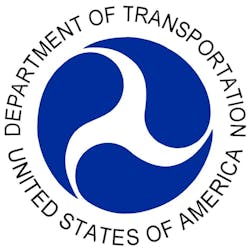U.S. DOT releases fact sheet on what infrastructure deal will mean for mobility
The U.S. Department of Transportation (U.S. DOT) recently released a fact sheet detailing what the bipartisan infrastructure deal and the passage of the Infrastructure Investment and Jobs Act (IIJA) will mean for American mobility.
"The Bipartisan Infrastructure Deal is a generational investment in America’s transportation network," the department said in a news release. "It will allow the nation to modernize its infrastructure, making it safer and more resilient. It will make our transportation systems more equitable and help fight climate change. It will create hundreds of thousands of good paying jobs and lay the foundation for America to compete and win in the 21st century."
U.S. DOT said the following can result from the bipartisan infrastructure deal:
- Reduce the backlog for major repairs for highways and bridges by almost 20%
- Spur the creation of a nationwide network of 500,000 EV chargers by 2030 including a special program for smaller and underserved communities
- Fix up to 10 of the most economically significant bridges in the nation, and repair over 15,000 smaller bridges across the country
- Reconnect as many as 20 communities by removing portions of interstates, redesigning rural main streets, and repurposing former rail lines
- Increase the number of communities that have strategies to reduce traffic fatalities and interventions that prevent death and serious injuries
- End growth in the national transit maintenance backlog, reduce the current backlog by 15%, and replace more than 1,700 aging subway, light rail, and commuter rail cars
- Replace over 10,000 fossil-fuel powered transit vehicles with cleaner electric or low emission transit vehicles
- Boost transit funding for communities all over the country by an average of 30%—allowing for communities to address maintenance backlogs, modernization, and expansion
- Fund replacement of Amtrak railcars, including ones that are nearly a half-century-old, with state-of-the-art trains on routes that account for nearly half of Amtrak’s annual ridership
The House of Representatives passed the IIJA on Nov. 5, while the Senate approved the bill on Aug. 10.
-----------
SOURCE: U.S. Department of Transportation
